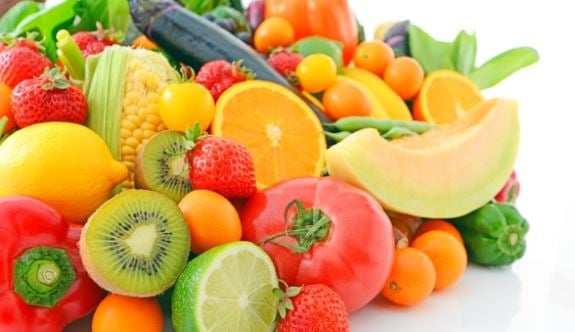Getting home from the hospital after a surgery may be a relief, but sometimes it could be accompanied by feelings of nausea or constipation.
Although you may not be hungry or want to eat, it is important to eat a healthy diet that would get you back in shape and help you fight fatigue.
Here are 10 foods that will help fight off infections, accelerate healing and enrich your nutrient stores.
Berries
Rich in vitamin C, berries are high in antioxidants, which are a powerhouse of nutrition. They help the body repair damages, rebuild collagen and soft tissue, thereby helping your incisions heal quicker.
You can benefit from grapes, strawberries, pomegranates, blueberries, raspberries and goji berries.
Vegetables
The vitamins and minerals you will find in vegetables are some of the most important nutrients in your healing diet.
Starchy vegetables like potatoes and sweet corns are healthy sources of carbohydrates that help fight off fatigue.
The fibre content of vegetables helps reduce constipation which is a common side effect of pain medication and decreased mobility.
Your body will thank you for gorging on veggies like sweet bell peppers, carrots, cabbage and broccoli.
Fats (nuts, oils and fish)
After a surgery, healthy fat is essential for strengthening your immune system and decreasing your chance of infection.
Olive oil, avocados, coconut oil, fish, almond and cashew nuts are high in vitamin E which helps wounds heal faster and reduce the appearance of scars over time.
Dark leafy greens
You can never have enough of dark leafy greens post operation.
Pumpkin leaf (Ugwu to Nigerians), spinach and kale are just some of the numerous leafy greens that pack a punch with a healthy dose of vitamin A, C, E, and vitamin K which is essential for blood clotting.
By taking dark leafy greens, you will also be absorbing B-complex vitamins which help with energy levels.
Also rich in iron, magnesium, potassium and calcium, greens are definitely nature’s multivitamins.
Protein-rich foods
Following surgery, your body needs a high amount of protein and iron to repair muscles and tissues that may have been damaged in the surgery process.
Stocking up on seafood, beans and lentils, meat and poultry and other sources of iron and protein helps to regenerate damaged tissue, create new blood cells and speed up wound healing.
Eggs
Eggs are one of nature’s gifts to mankind neatly packed in a shell. They are one of the first solid meals you can take after the doctor has advised you to start eating post-op.
One egg provides you with six grams of protein, vitamin A, E and K, B-complex vitamins (including B12), riboflavin, folic acid, calcium, zinc and iron.
Probiotic foods
Probiotics are happy, healthy bacteria that your body needs to digest food, provide mental balance and fight off all the germs and infections you are prone to after a surgery.
Anaesthetics, antibiotics and painkillers taken before and after surgery can upset the delicate balance in your gut leaving you with digestive upsets, constipation and nausea.
Yoghurt is the most common probiotic food that you can have a good amount of, to help regulate your system.
Brightly coloured fruits
Healing foods do not need to be boring. After surgery, you can eat a variety of brightly coloured fruits and get a good dose of vitamin A, C, carbohydrates, fibre, antioxidants and the nutritious calories your body needs to bounce back.
A rainbow-coloured platter of oranges, mangos, pawpaw, apples, water melon, apricots, pineapples peaches, plum, cherries—can be taken in small but regular portions for a delicious healing process.
Whole grains
Eating plenty of whole grains after surgery will arm your brain and body the arsenal to fight muscle deterioration and loss of energy.
Whole grains like oats, whole wheat or sourdough bread, quinoa, local rice ( try ofada) contain the right kind and amount of carbohydrates that will bring your energy levels up.
Water
What would this list be without water? Don’t forget, your body is made up of 55-60 percent water.
Dehydration is common and maintaining adequate levels of hydration will help you recover quickly.
Depending on the type of surgery you have undergone and the medication that has been prescribed to you, your requirements for fluids may be higher than usual.
If drinking plain water is unappealing, you can flavour it with lime or lemon or even drink coconut water.
Considering the wide array of food options before you, be sure to seek your doctor’s advice before you embark on any post-surgery diet.
Copyright 2025 TheCable. All rights reserved. This material, and other digital content on this website, may not be reproduced, published, broadcast, rewritten or redistributed in whole or in part without prior express written permission from TheCable.
Follow us on twitter @Thecablestyle

